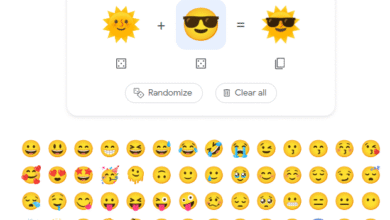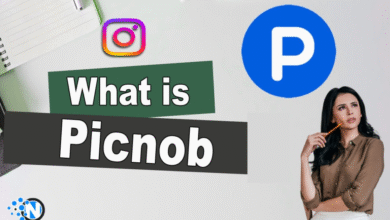How to Get on First Page of Google Search: Insights from David Aziz?

In the fast-paced digital world, visibility is everything. Whether you’re a small business owner, a blogger, or an e-commerce entrepreneur, getting your content on the first page of Google is critical to attracting organic traffic, building authority, and achieving online success. According to SEO strategist David Aziz, ranking high on Google is not a stroke of luck—it’s a strategic, data-driven process.
In this comprehensive guide, we’ll explore exactly how to get on the first page of Google search using David Aziz’s proven methodologies, tools, and insights.
Why the First Page of Google Matters
Before diving into strategies, it’s important to understand why the first page is the holy grail of search engine optimization (SEO):
- 75% of users never scroll past the first page of search results.
- The top 3 results get over 50% of all clicks.
- Higher rankings significantly increase website credibility and conversions.
If your website isn’t on page one, you’re likely invisible to potential visitors. That’s why learning how to rank on the first page—especially by following experts like David Aziz—is a game-changer.
Who is David Aziz?
David Aziz is a highly-regarded SEO and digital marketing expert known for his results-driven strategies to improve online visibility. With years of experience in organic search optimization, David has helped countless websites rank at the top of Google search results. His methods blend technical SEO, content strategy, and modern algorithm understanding—making him a go-to resource for ambitious marketers and site owners.
Step-by-Step: How to Get on First Page of Google Search (David Aziz Method)
1. Start with Keyword Research
David Aziz emphasizes that success begins with choosing the right keywords. Don’t just go after high-volume keywords—focus on intent-based long-tail keywords.
Tools Recommended by David Aziz:
- Google Keyword Planner
- Ahrefs
- Ubersuggest
- SEMrush
Look for keywords with:
- Moderate to high search volume
- Low competition
- Clear search intent
For example, instead of targeting “digital marketing,” try “how to improve digital marketing for small business 2025.”
Pro Tip from David Aziz: Analyze competitor pages ranking for your target keyword and identify gaps you can fill with better, more detailed content.
2. Create High-Quality, In-Depth Content
Google ranks useful, authoritative content. According to Aziz, thin content is dead. To dominate the SERPs (Search Engine Results Pages), your content must be:
- In-depth (aim for 1,500+ words)
- Well-structured (using headers and subheaders)
- Original and unique
- Rich in media (images, infographics, videos)
Use the E-E-A-T Framework:
- Experience
- Expertise
- Authoritativeness
- Trustworthiness
David emphasizes using personal case studies, data, and examples to support your claims. This boosts trust and engagement—two metrics Google values.
3. Master On-Page SEO Optimization
Content is only part of the equation. On-page SEO ensures your pages are optimized for both users and search engines.
Checklist from David Aziz:
- Include the target keyword in the title tag (preferably at the beginning)
- Add keyword variations in H1, H2, and meta description
- Optimize image alt text
- Use internal linking to other relevant posts
- Keep URLs short and keyword-rich (e.g., /first-page-google-david-aziz)
Example Title Tag:
How to Get on the First Page of Google Search – David Aziz’s 2025 SEO Strategy
4. Focus on User Experience (UX)
Google’s algorithm prioritizes user satisfaction. According to David Aziz, if your site is slow, hard to navigate, or not mobile-friendly, your rankings will suffer.
Improve UX by:
- Using mobile-responsive design
- Minimizing loading times (aim for < 3 seconds)
- Organizing content with clear navigation
- Reducing bounce rate by offering engaging, relevant content
Tools like Google PageSpeed Insights and Lighthouse can help you audit and improve technical performance.
5. Build Authoritative Backlinks
Backlinks remain one of the top three ranking factors. David Aziz recommends a natural, high-authority link-building strategy.
Strategies That Work:
- Guest posting on reputable blogs in your niche
- Creating share-worthy content like infographics, statistics, and industry reports
- Reclaiming broken links using tools like Ahrefs
- Leveraging HARO (Help A Reporter Out) for PR backlinks
Avoid spammy link farms and low-quality directories. Quality trumps quantity every time.
6. Enhance Technical SEO
Search engines need to crawl and index your site efficiently. According to David Aziz, even the best content will fail if your technical SEO is broken.
Technical SEO Essentials:
- Submit your sitemap to Google Search Console
- Use schema markup for rich snippets
- Fix broken links and redirects
- Use SSL encryption (HTTPS) for trust and security
- Implement canonical tags to avoid duplicate content issues
David also recommends frequent site audits to identify and fix technical issues before they impact rankings.
7. Optimize for Featured Snippets
Featured snippets are the “zero position” above all organic listings. David Aziz often targets them by structuring content in a way Google loves.
How to Optimize:
- Answer questions in short, concise paragraphs
- Use bullet points and numbered lists
- Include FAQ sections at the end of your posts
- Add schema markup for FAQs and How-Tos
Ranking in a featured snippet can dramatically increase your CTR (click-through rate).
8. Leverage Local SEO (If Applicable)
If you have a business targeting local audiences, David Aziz stresses the importance of local SEO.
Key Tactics:
- Claim and optimize your Google Business Profile
- Use location-specific keywords
- Get listed in local directories (Yelp, Foursquare, Bing Places)
- Encourage Google reviews from customers
Local search queries like “SEO expert near me” or “best coffee shop in [city]” are highly valuable for foot traffic and conversions.
9. Track, Analyze, and Adjust
SEO is not a set-it-and-forget-it task. David Aziz recommends continual monitoring to refine your strategy and adapt to algorithm updates.
Track These Metrics:
- Organic traffic (via Google Analytics)
- Keyword rankings (via Ahrefs or SEMrush)
- Bounce rate and dwell time
- Backlink growth
- Page speed and core web vitals
Use this data to understand what’s working and where to improve.
Final Thoughts: The David Aziz Way to Page One
Ranking on Google’s first page is not about gaming the system. It’s about providing real value, staying current with SEO trends, and executing consistently.
To summarize David Aziz’s approach:
- Focus on intent-driven keywords
- Deliver top-tier content
- Optimize on-page and technical SEO
- Build credible backlinks
- Continuously analyze and improve
Following these strategies doesn’t just help you rank—it helps you build a brand that users and search engines trust.



